Delve into the underwater magic of Baja California. Whether you’re a seasoned diver, recently certified or want to start your journey into the world of SCUBA, where better to start than in amongst the magic of Baja California. Join us to explore new reefs, encounter amazing wildlife and learn new skills.
Pricing is shown in USD for reference. All payments are taken in local currency at the set rate.

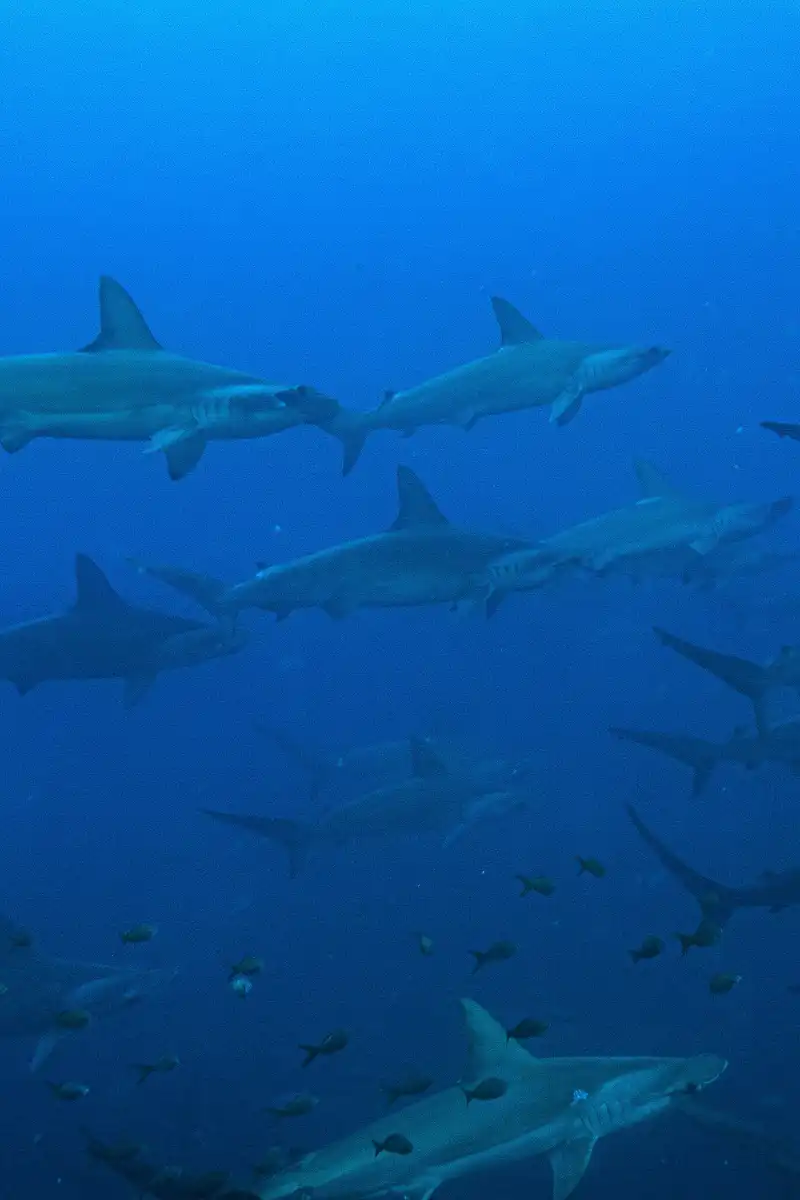
Diving at Gordo Banks
Gordo Banks is a world renowned dive site located 8 miles off the coast of San José. This underwater paradise is characterised by its diverse marine life and unique underwater topography. Divers are treated to the sight of large schools of pelagic fish, sharks, and rays including tuna, jacks, marlin, hammerhead sharks and manta rays.
Gordo Banks is a popular destination for experienced divers seeking thrilling encounters with marine giants in the crystal-clear waters of the Gulf of California.
What’s included:
- Two tank dive
- Refreshments
- Small groups (max four per guide)
- Highly experienced guides
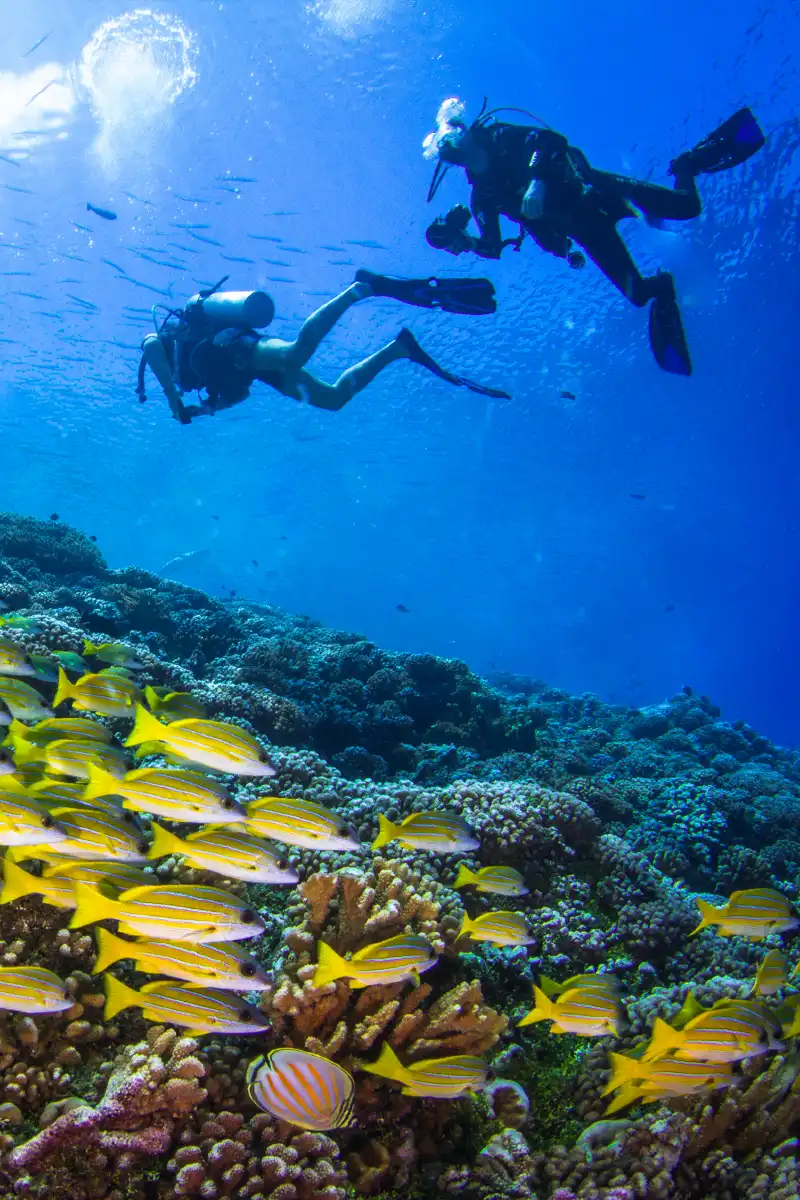
Local Reef diving
San José offers captivating reef diving experiences year round in clear and warm waters. Diving with us you can expect:
**Colorful Coral Gardens**. The local reefs have a diverse array of hard and soft corals, creating a visually stunning underwater landscape.
**Rich Marine Biodiversity**: Encounter an abundance of marine life, including tropical fish and large pelagic species, 5 species of sea turtles, rays, eels, and invertebrates.
**Accessible for All Levels**: Whether you're a novice diver or an experienced enthusiast, the reef diving sites of San José del Cabo cater to divers of all skill levels. Dive operators provide guided experiences suitable for beginners as well as more challenging sites for advanced divers.
What’s included:
- Two tank dive
- Refreshments
- Small groups (max four per guide)
- Highly experienced guides
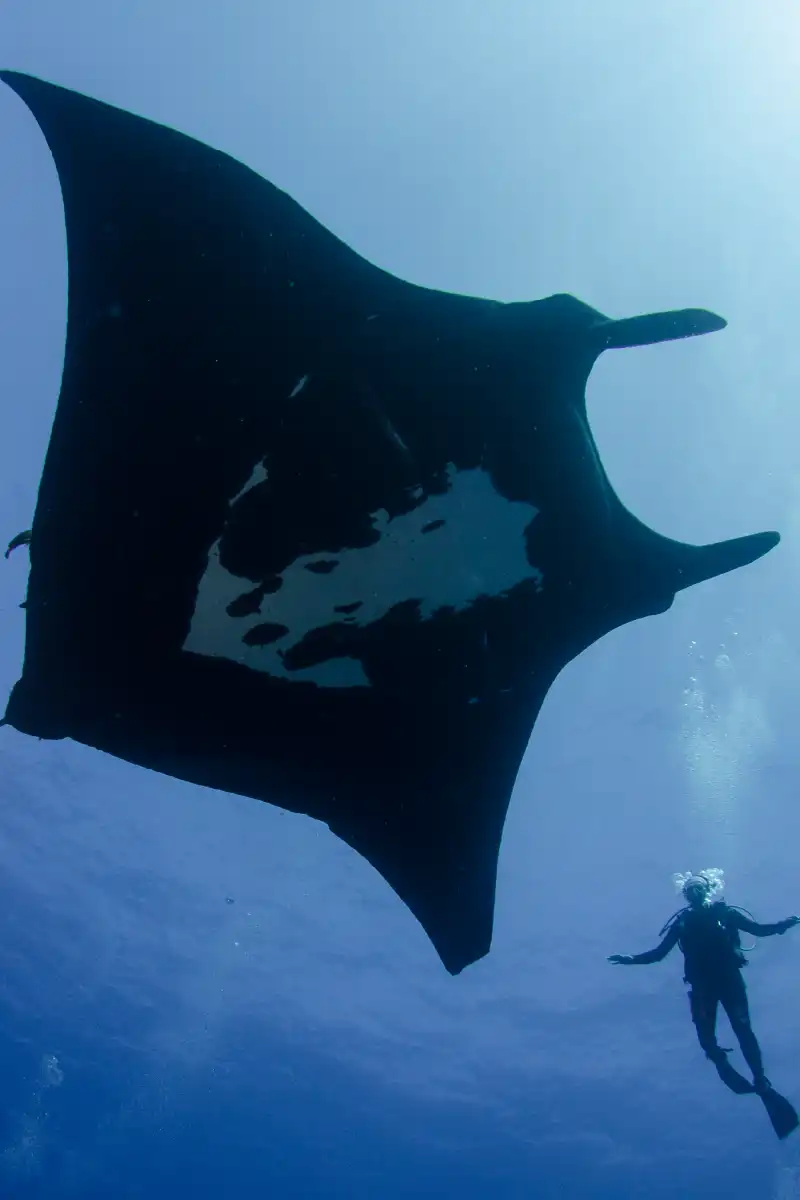
Diving around Los Cabos
Around Los Cabos you have the option of diving in the marine parks of Cabo Pulmo or Cabo San Lucas. Both destinations have an abundance of fish, shark, ray, turtle and invertebrate species that can rival the very best all over the world.
What’s included:
- Two tank dive
- Refreshments
- Small groups (max four per guide)
- Highly experienced guides

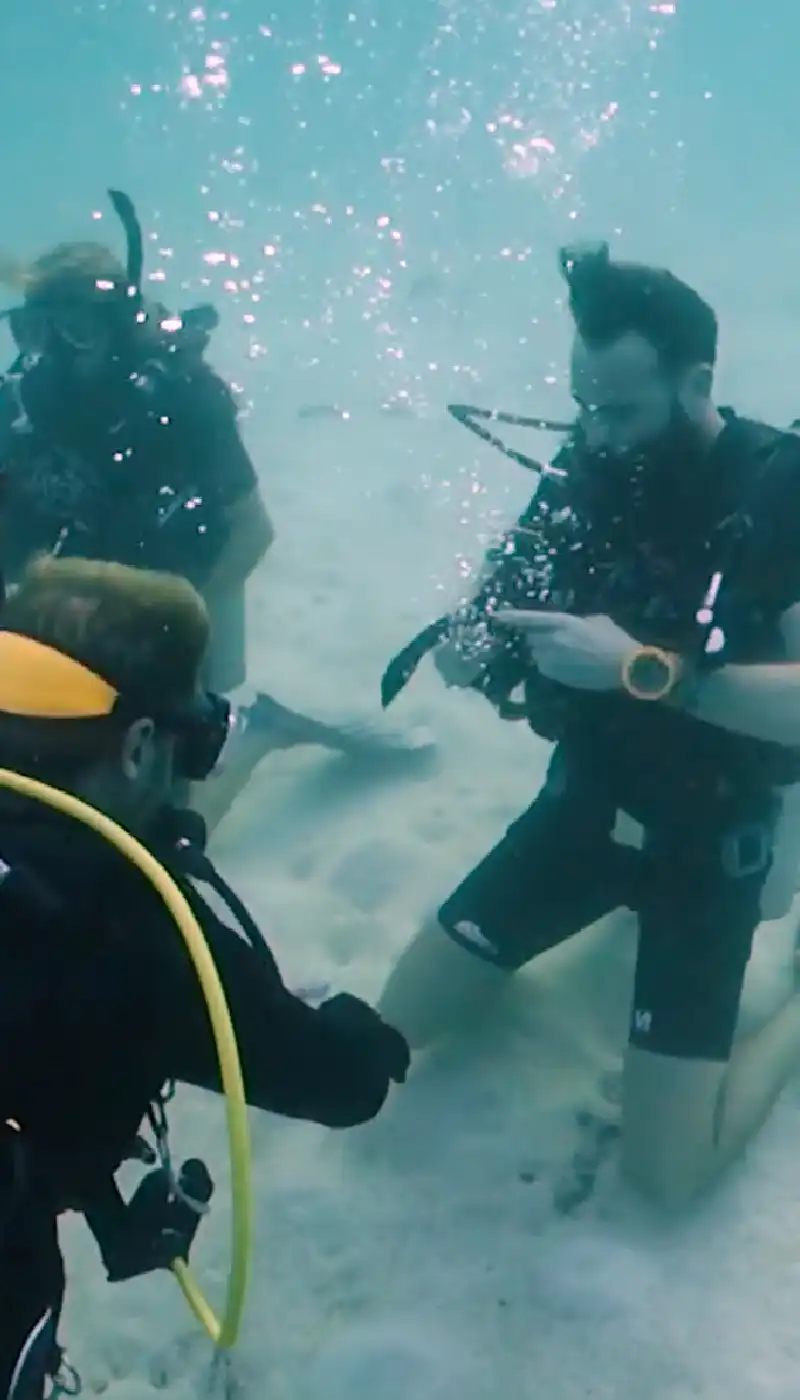
OPEN WATER COURSE
The beginning of your scuba adventure starts here! The PADI Open Water Diver course is created to teach individuals the fundamental skills and knowledge needed to explore underwater environments. Students gain knowledge in dive planning, safety protocols, equipment use, and underwater communication. The course starts with theoretical study and confined water sessions. The second half of the course involves a series of dives in open water to apply skills in a real world setting. Upon completion, students receive the PADI Open Water certification, allowing them to explore open water depths while adhering to safety standards.
Take this course if you want to:
- Challenge yourself.
- Support Ocean Protection.
- Explore the other 70% of our planet.
- See things you’ve never seen before.
- Carry the world's most recognized scuba certification.
Learn how to:
- Be a confident and skilled diver.
- Assemble and use scuba gear.
- Manage your buoyancy.
- Respectfully approach marine life.
- Handle common problems.
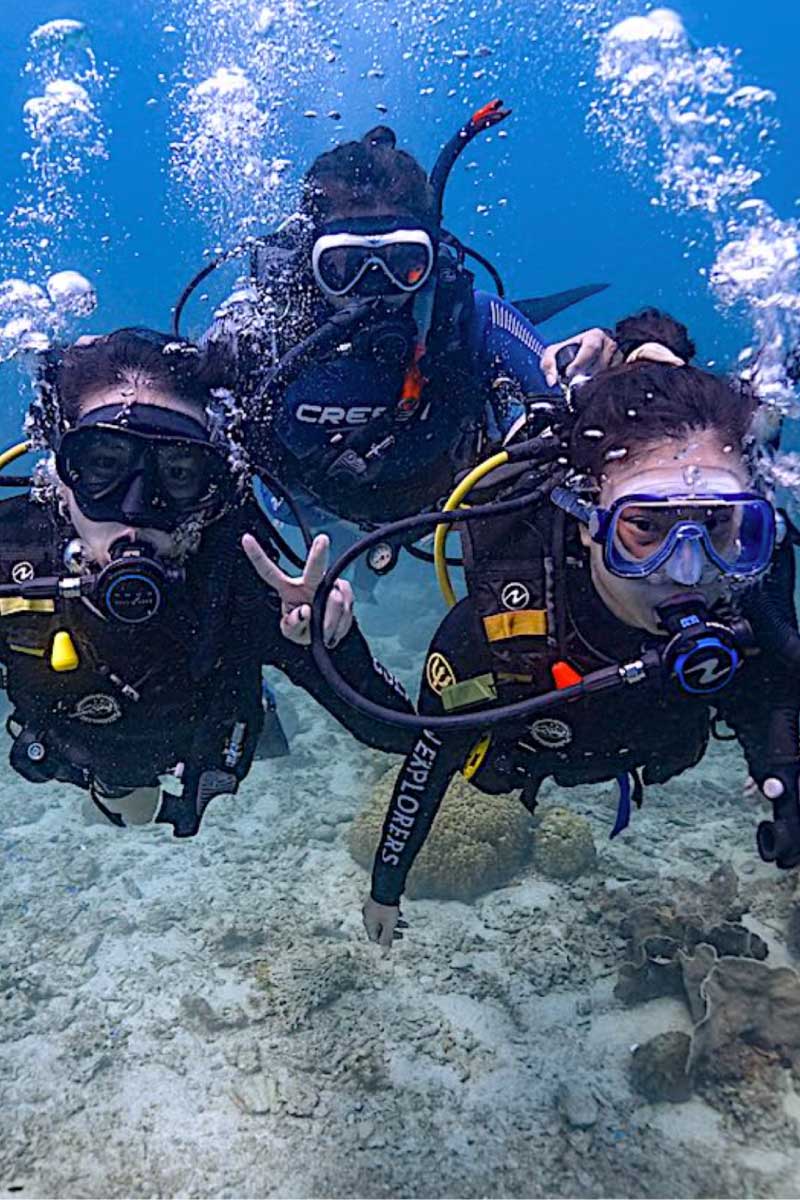
DISCOVER SCUBA DIVING (DSD)
The PADI Discover Scuba Diving (DSD) experience is the perfect way to start your journey of SCUBA diving and exploring the underwater world. This beginner oriented program allows you to dive into beautiful blue waters of the Sea of Cortez, one of the most biodiverse Seas in the world. You’ll be surrounded by colorful coral reefs and diverse marine life, including tropical fish, rays, and possibly even sea turtles and reef sharks! Under close guidance and control from our highly experienced instructors, you'll learn the basics of scuba diving in a safe, controlled environment, inspiring confidence and creating lifelong memories!
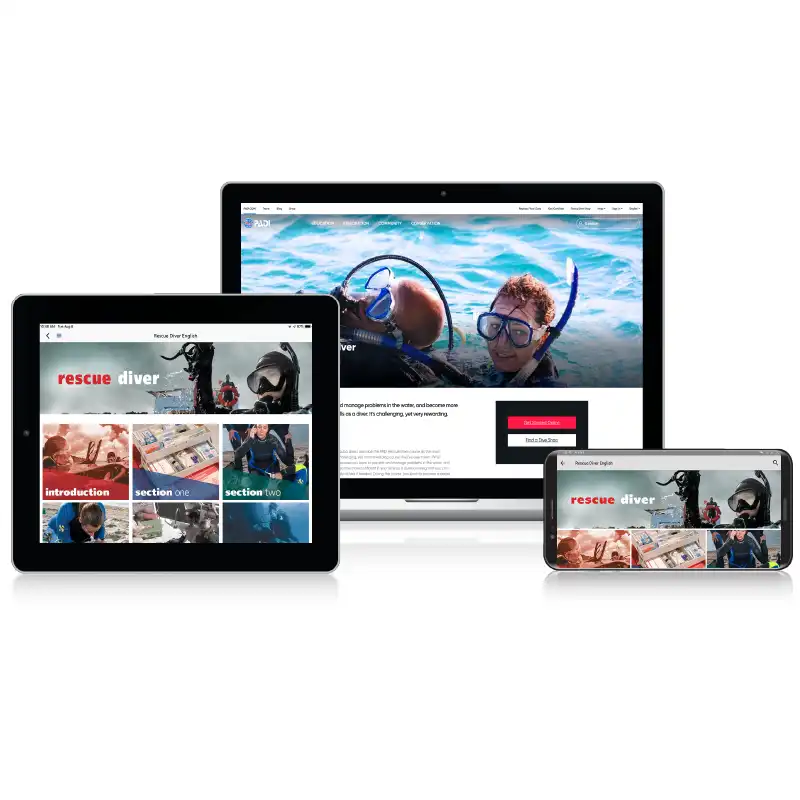
E-Learning
Online learning certainly has come a long way. We are happy to offer nearly every course in e-learning form. From the beginning Open Water course and multiple specialties to professional courses and beyond, e-learning makes it quick and easy to learn on your own schedule and spend more time diving!
- Prerequisites:
- Varies with course
-
Time:
Varies with course
-
Cost:
Varies with Course
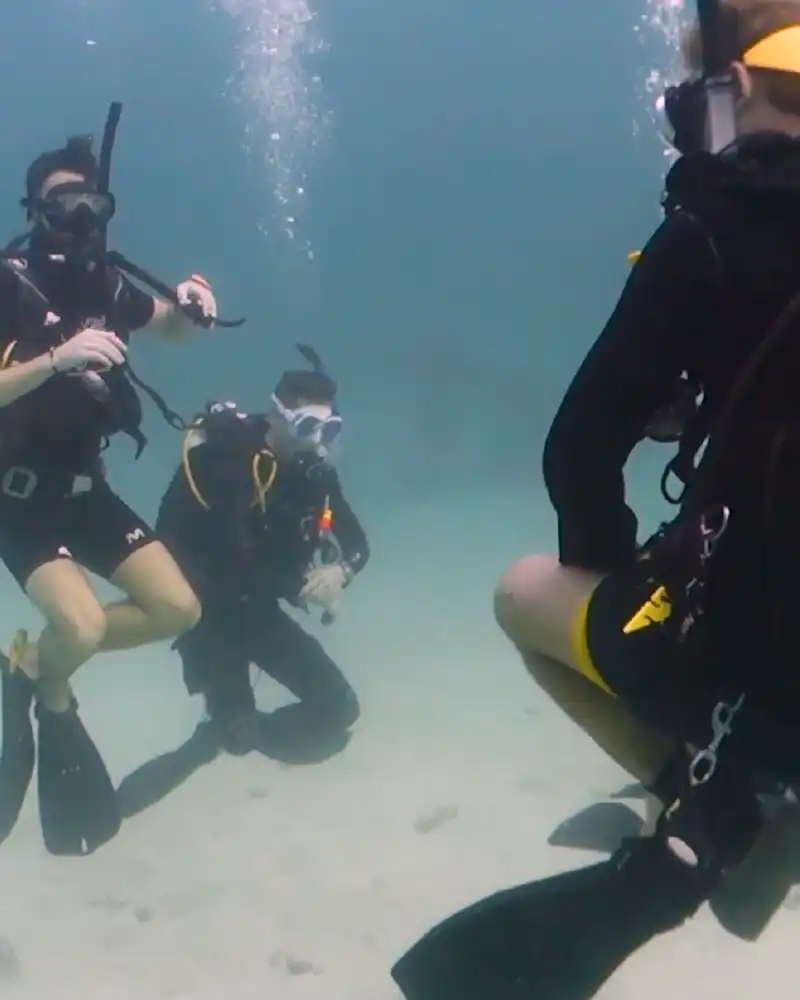
Referrals
If you start a course anywhere in the world with a PADI dive centre or instructor, we can help you finish your course! This is a very common option for those who live and work in areas of cooler water and want to dive within the tropics and see what the Sea of Cortez has to offer.
What we will do:
- Check your training is within 12 months.
- Check that you have adequate referral information from previous shop/instructor
- Provide an assessment of skills required
- Provide any remedial training (in and out of water) as needed

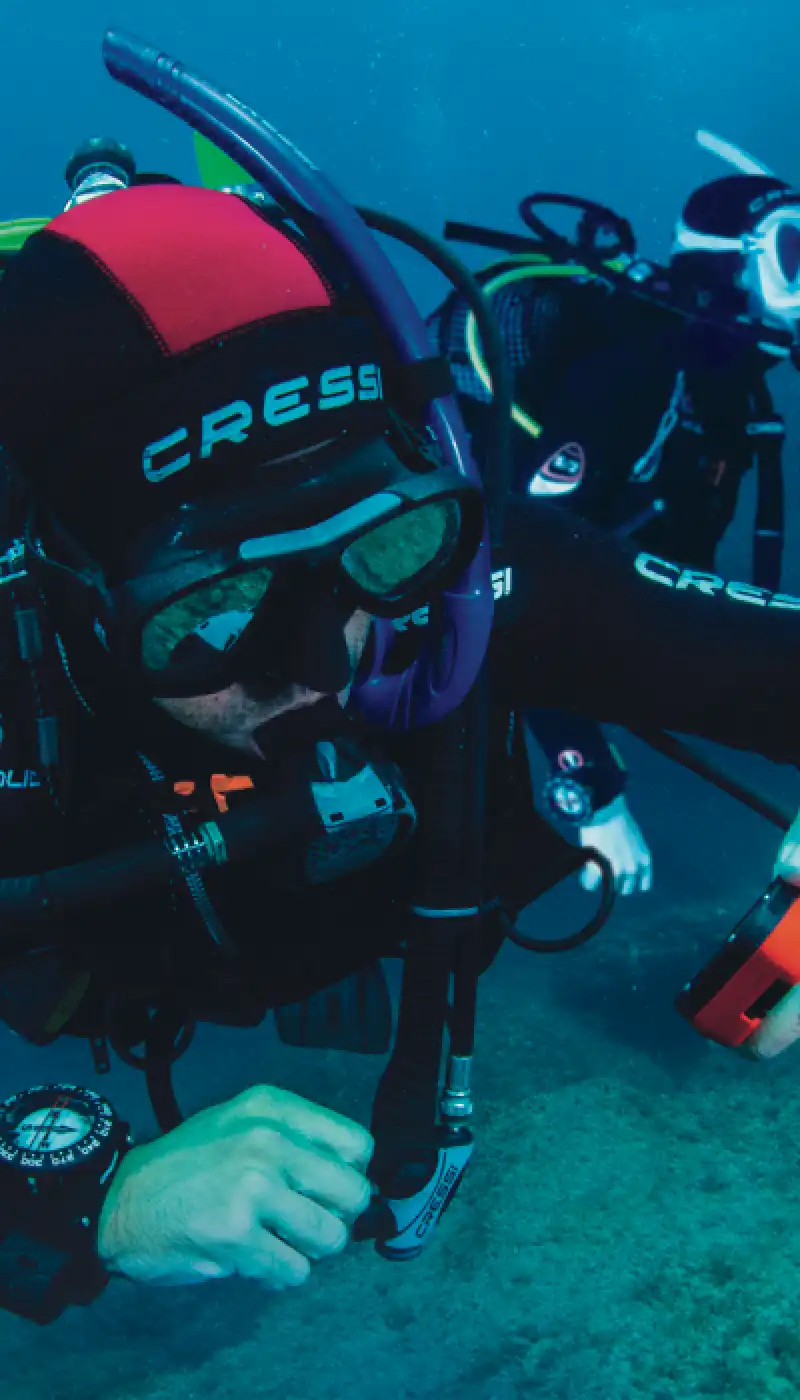
Advanced Open Water Diver
The natural progression of a scuba diver is to follow up the PADI Open Water Diver certification with the Advanced Open Water Diver. Here we build on the essential skills learned in the Open Water course, while exploring various specialty dives such as night diving, buoyancy, navigation, and deep diving. A similar curriculum can be expected, combining classroom (e-learning) with practical application, allowing students to gain proficiency and confidence in multiple underwater situations. The Advanced Open Water Diver certification signifies a higher level of expertise, allowing divers to explore a wider range of underwater environments. It also strengthens a continued passion for diving and contributes to a pathway for divers to pursue more specialized areas within the world of scuba.
Take this course if you want to:
- Gain more diving experience
- Sample different types of diving
- Extend your limits
- Practice navigation
Learn how to:
- Explore below 18M/60FT
- Improve buoyancy
- Use a compass with more confidence
- Dive at night
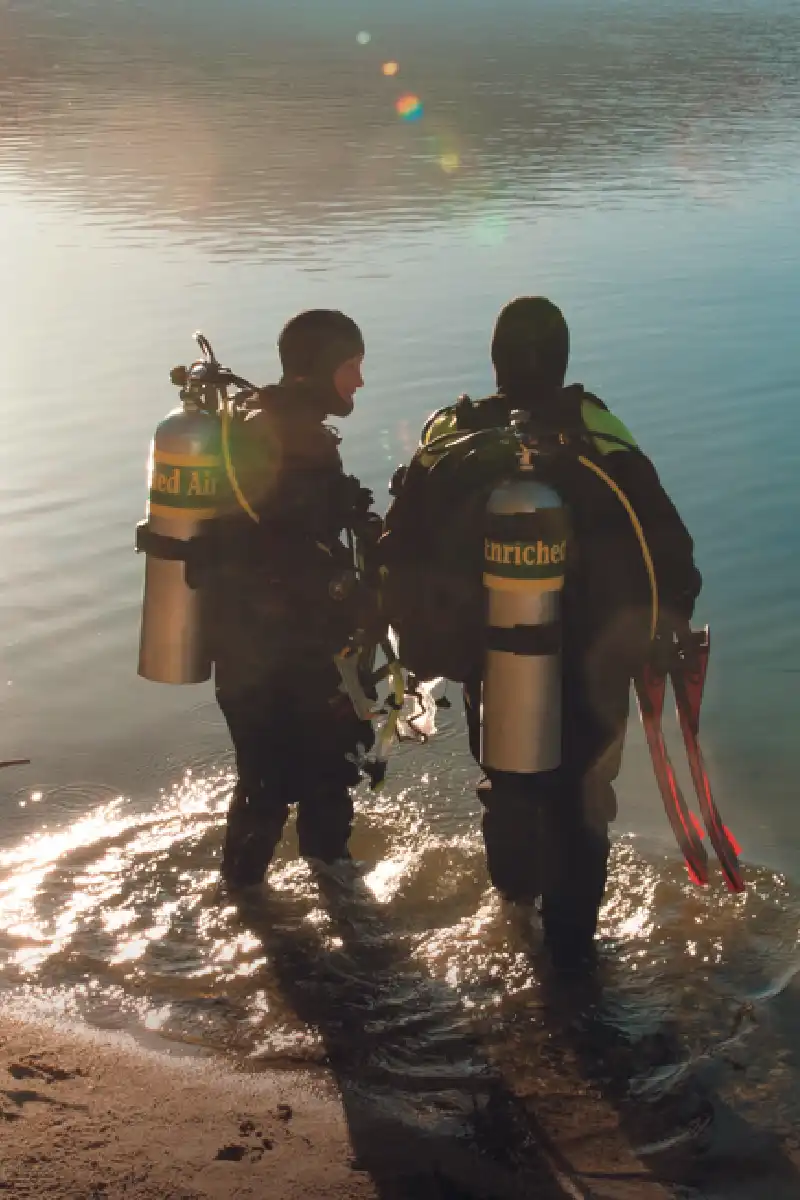
Nitrox Diver
Nitrox diving with enriched air, also known as EANx, has less nitrogen in the scuba cylinder than regular air. Less nitrogen means you can enjoy shorter surface intervals and longer dives. Some liveaboards require this certification for repetitive diving, and is a must have for wreck penetrations, search and recovery, and other specialty interests. It’s no wonder that Enriched Air Diver is the most popular PADI specialty.
Take this course if you want to:
- Get nitrox air fills
- Stay at depth longer
- Enjoy shorter surface intervals
- Feel better after dives
Learn how to:
- Dive with nitrox
- Use an oxygen air analyzer
- Set your dive computer
- Plan nitrox dives
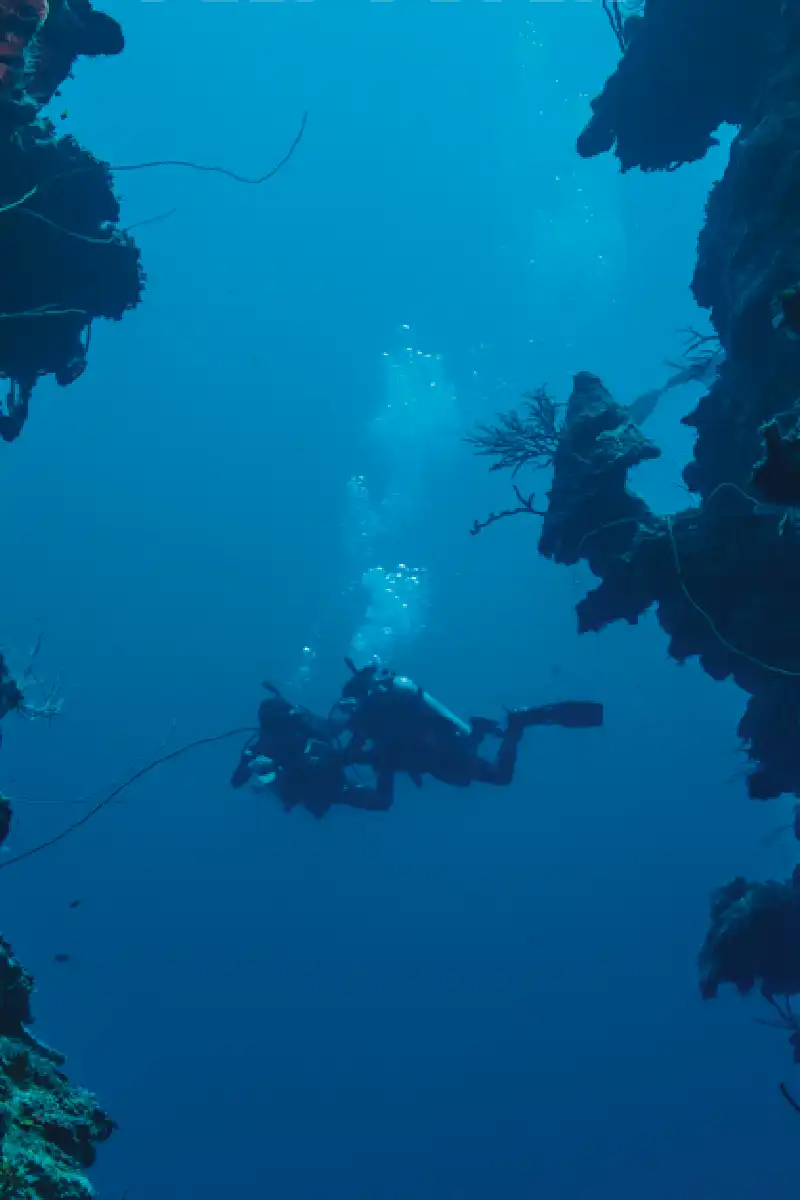
Deep Diver
Diving comfortably inside your limits is synonymous with the PADI Deep Diver course. Here you will learn to manage gas supplies while planning the dive, and different ways to identify and manage narcosis. Buddy procedures, buoyancy control, and safety considerations are highlighted in this course.
Take this course if you want to:
- Make deep dives with an instructor
- See more of the underwater world
- Dive to a maximum depth of 40m/130ft
Learn how to:
- Mange your gas supply
- Identify and deal with narcosis
- Recognize your personal limits
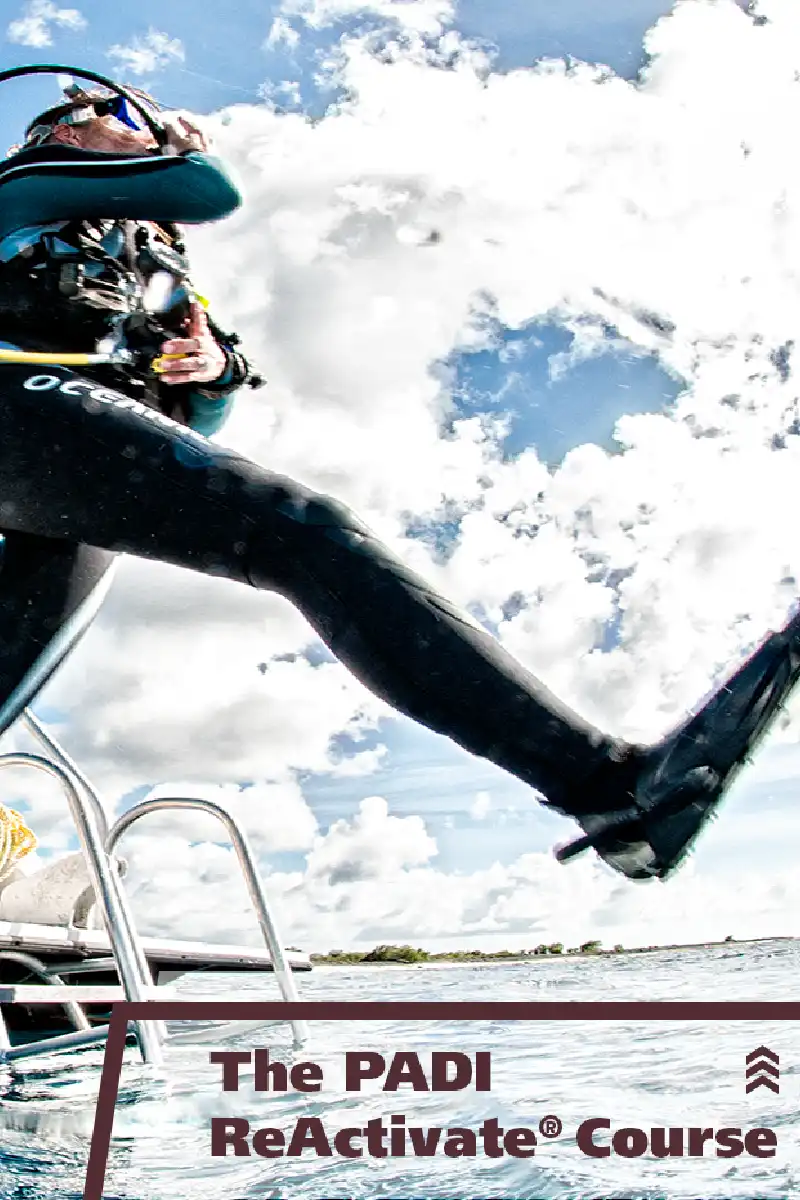
ReActivate/Refresher
Has it been a while since your last dive? It happens to most of us, time goes by without even noticing and we may get a little rusty on essential skills. PADI ReActivate is an efficient way to refresh your dive knowledge and scuba skills. Work on topics you know well, and dive deeper into subject matter where your knowledge may have lapsed.
Take this course if you want to:
- Refresh your skills before a trip
- Prepare for your next course
- Get an updated certification card
Learn how to:
- Assemble a scuba unit
- Handle common problems
- Perform basic skills with ease
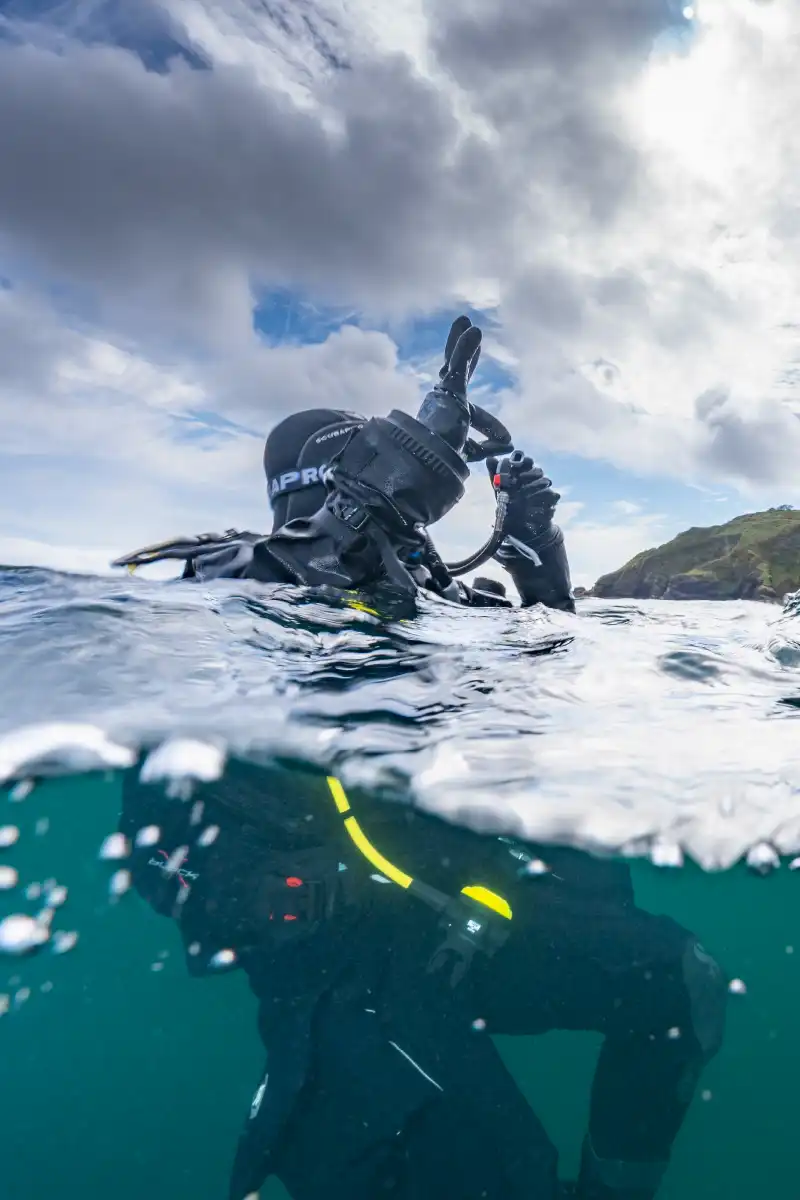
Dry Suit Diver
Diving in Cabo tiptoes on the line of which to wear, wetsuit or drysuit? During some times of the year, and with certain deeper depths, drysuits are the preferred exposure suit. Drysuits fill with air, allowing your body to heat the gas, keeping your body warm and dry! During the Drysuit Diver, your instructor will teach you how to control your buoyancy as your suit fills with air. You’ll also learn the different types of drysuits, and the basic repairs and maintenance required.
Take this course if you want to:
- Dive in colder water temperatures
- Stay warmer in colder waters
- Learn to dive in a drysuit
- Buy a drysuit
Learn how to:
- Avoid common drysuit diving problems
- Choose a drysuit and undergarments
- Care for your drysuit
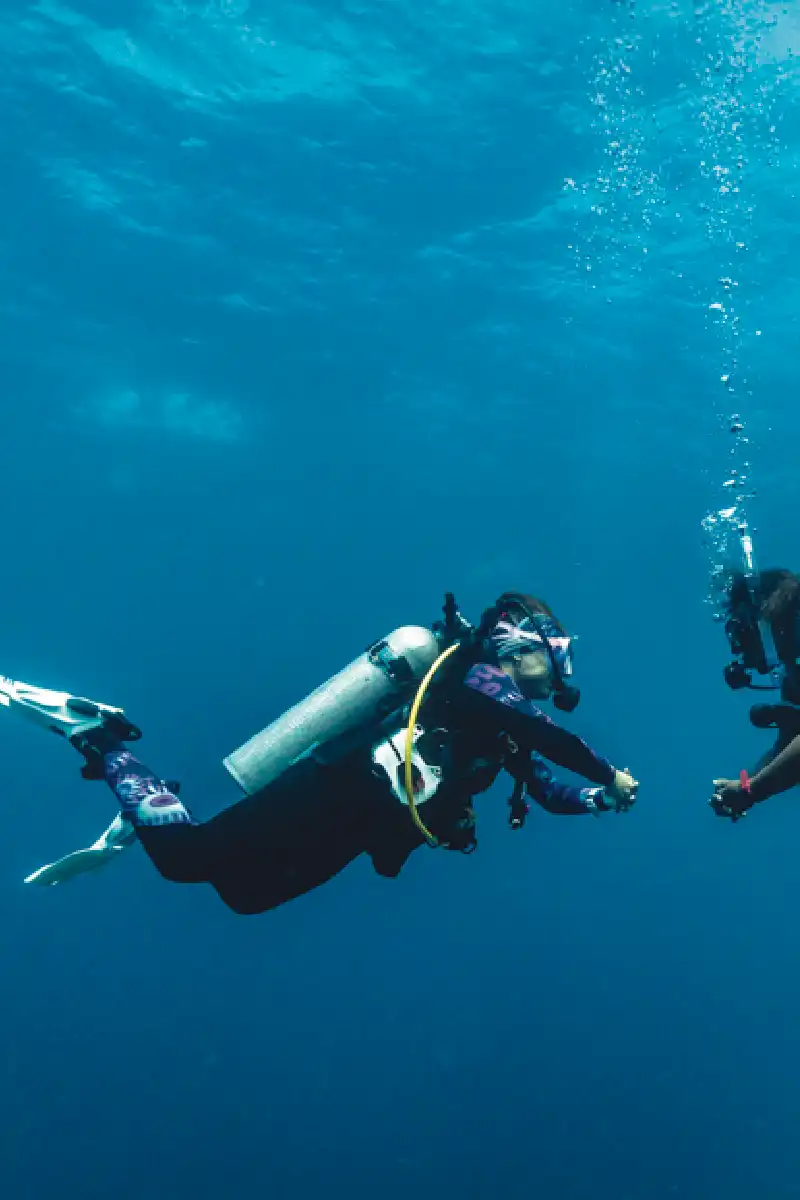
Peak Performance Buoyancy
It’s easy to spot a skilled scuba diver, their perfectly neutral trim gives it away. They seem to effortlessly glide, easily observing aquatic life without disturbing their surroundings. This skill comes from the Peak Performance Buoyancy course, where we help to improve the buoyancy skills you learned as a new diver. In just a few focused dives, you will quickly improve your gliding and overall diving technique.
Take this course if you want to:
- Improve your buoyancy control
- Dive with less weight
- Reduce your air consumption
Learn how to:
- Achieve neutral buoyancy
- Hover effortlessly
- Use the right amount of weight
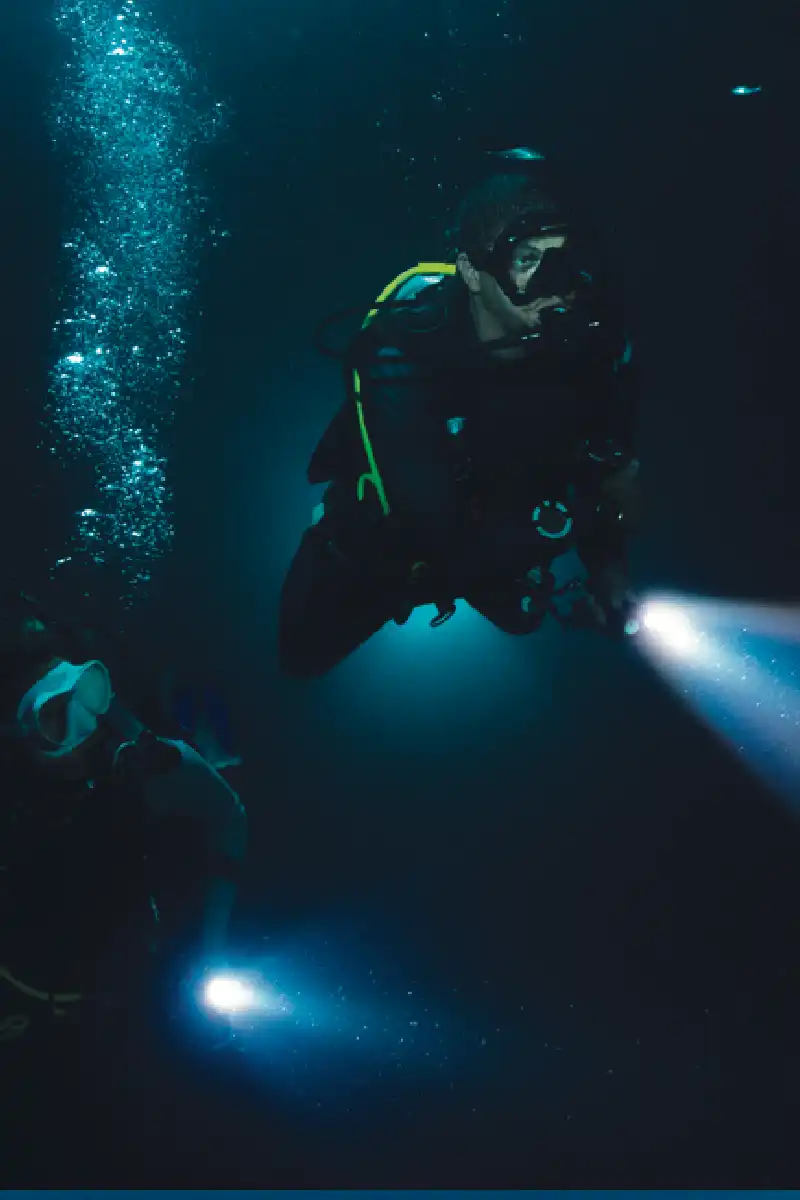
Night Diver
We can’t deny the explorer in us. To dive beneath the surface at night is an experience many keep close to their heart. Seeing the underwater world through a whole new lens as it comes to life with the glow of your dive torch. The site changes when daytime creatures retreat and nocturnal species emerge. PADI Night Diver course teaches navigation, communication, and buoyancy control in a foreign environment.
Take this course if you want to:
- Avoid getting lost in the dark
- See familiar dive sites in a new light
- Try something new and exciting
- Make your first night dive with a pro
Learn how to:
- Navigate underwater at night
- Make ascents and descents in the dark
- Use your dive light for communication
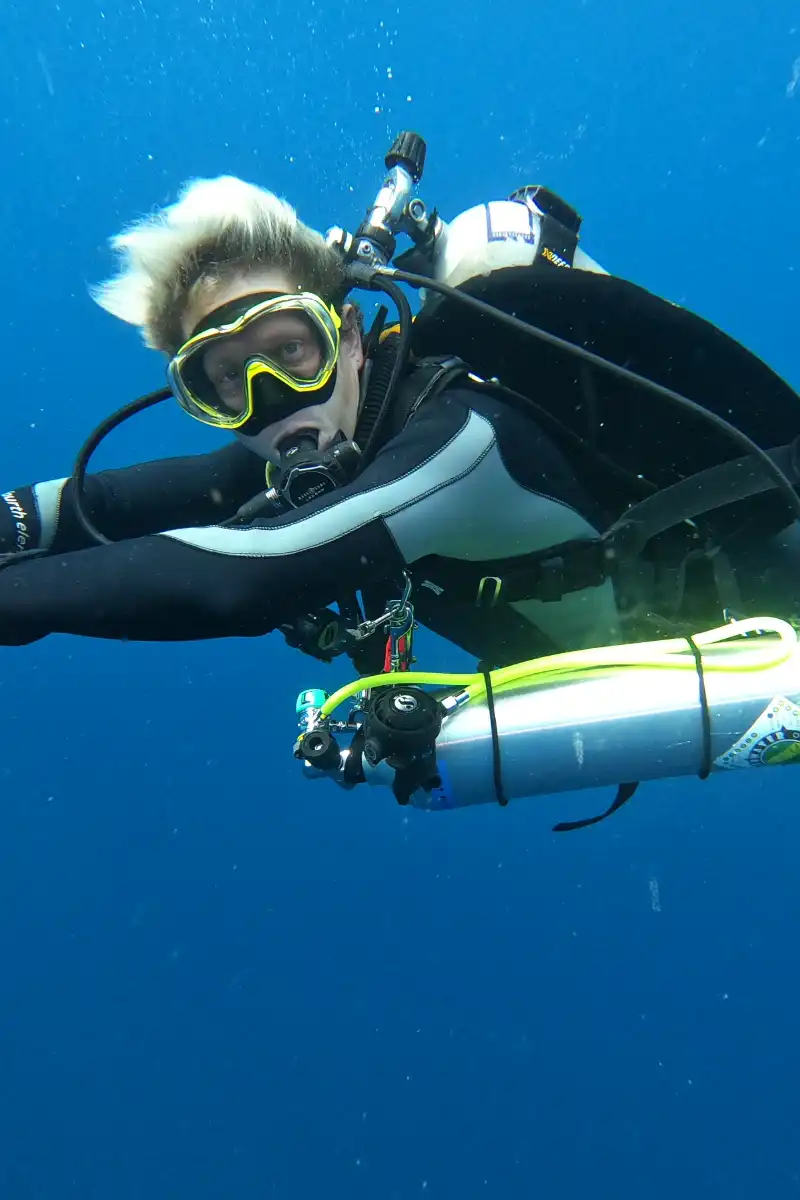
Self-Reliant Diver
Diving on your own may seem risky to some, yet this course is essential for many. The PADI Self-Reliant Diver teaches you to manage gases and maintain dive plan, while following self-reliant diving techniques. If you maintain a mental discipline and determination to learn, you’ll bolster your skills and confidence when diving alone, or as a dive buddy in a team.
Take this course if you want to:
- Gain confidence
- Become more self sufficient
- Take responsibility for your own safety
Learn how to:
- Plan in dives in detail
- Handle pony cylinders
- Navigate alone
- Handle emergencies yourself
- Prerequisites:
- 18 years old PADI Advanced Open Water Diver 100 logged dives
-
Time:
2 Days
-
Cost:
$395
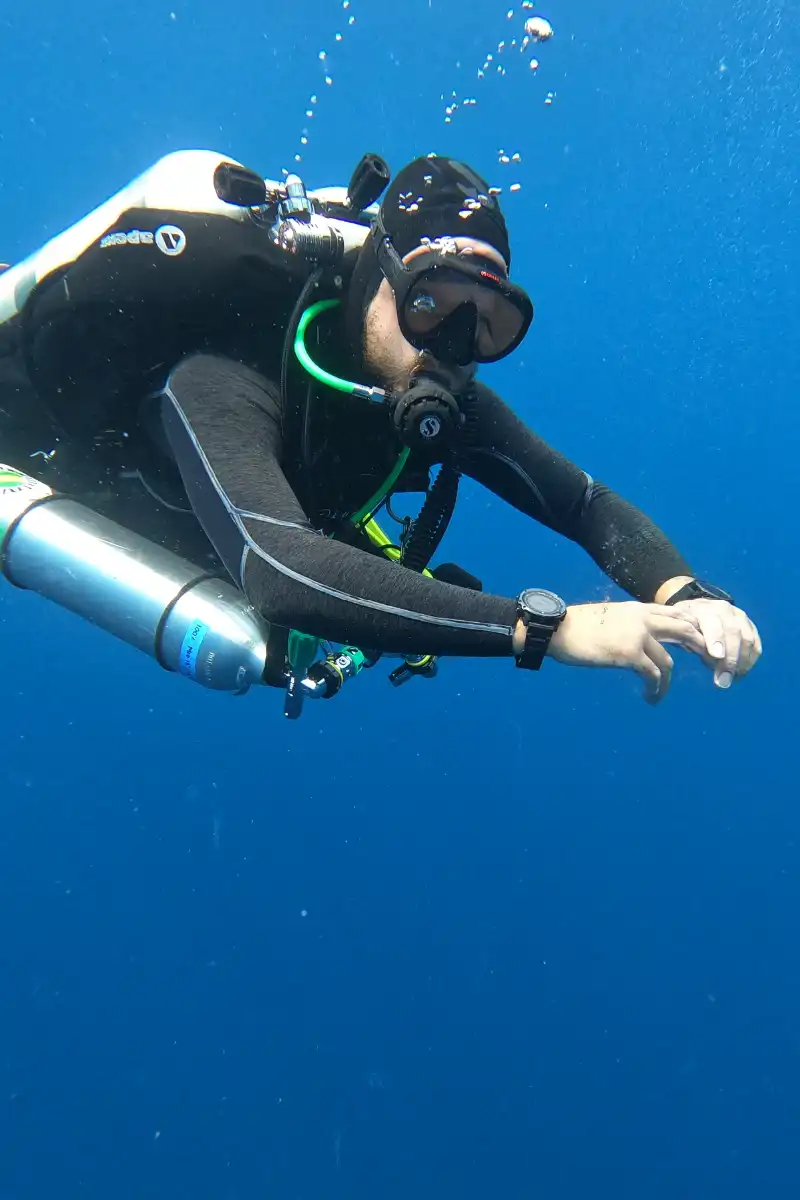
Drift Diver
Drifting along while diving has the sensation of flying underwater. In the PADI Drift Diver course, you’ll learn drift diving tips, practise buoyancy control, navigation, use of surface marker buoy and buddy communication.
Take this course if you want to:
- Try drift diving with an instructor
- Feel confident diving in a current
- Learn about aquatic currents – causes and effects
Learn how to:
- Use surface signalling equipment
- Stay close to your buddy
- Make entries and descents in a current
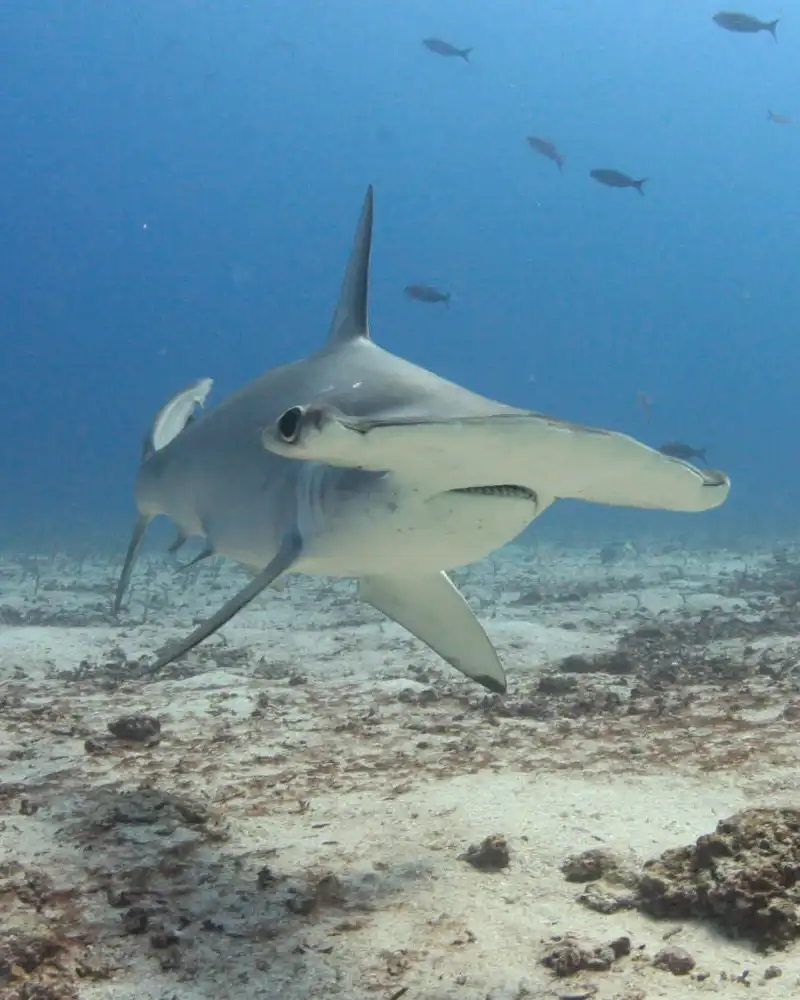
AWARE - Shark Conservation
We LOVE sharks! Hopefully you do too! PADI AWARE Shark Conservation specialty course aides in discovering the value of sharks to marine ecosystems and economies, while teaching you the causes of declining shark populations and the actions you can take to become a shark defender. We have many species present in Cabo, and the more you are informed, the better you can help to dispel misconceptions and protect our sharks.
Take this course if you want to:
- Learn more about sharks
- Participate in conservation activities
- Tell everyone how beautiful, not scary sharks are
Fish Identification Dives become more memorable when able to recognize and identify fish families.
Emergency O2 Provider Improve your safety and the safety of others when learning how to administer emergency oxygen for scuba diving injuries.
Coral Reef Conservation Understand the complexity of coral reef habitats, and how you can help conserve these vital systems.
Sidemount Rec Diver Sidemount not only looks cool, but it’s incredibly comfortable, streamlined, and a great way to dive with more than one tank.
Adaptive Techniques This course focuses on increasing awareness of varying diver abilities, and explores adaptive teaching techniques to apply when training and diving with physical and mentally challenged divers.
Dive Against Debris Pay the ocean forward by helping clean it up on your next dive. Learn about the problems of marine debris, conducting Dive Against Debris surveys, and how divers are a part of the solution to keeping our oceans clean.
Underwater Navigator Understanding your place in the water can be tricky, but this course makes it easy, learning and practising navigation skills betters your ability to navigate underwater.
Wreck Diver Exploring wrecks is a highlight for most divers. Safely learn how to map, navigate, and identify remnants of a wreck.
Search And Recovery Diver Learn how to use a lift bag, and effective underwater search techniques.
Boat Diver Learn about diving etiquette, terminology and important do’s and don’ts.

